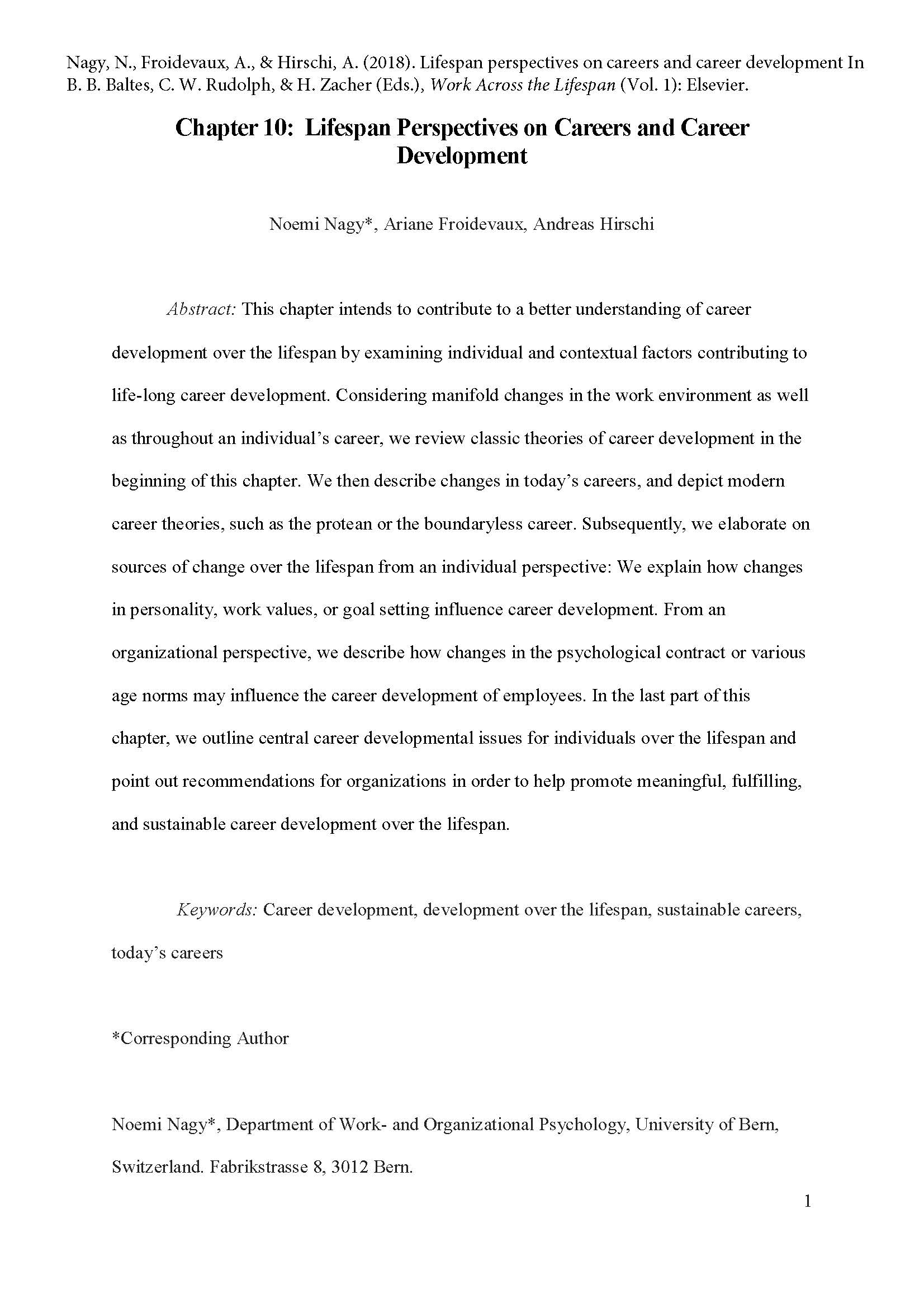Networking as predictor of work-nonwork enrichment: Mechanisms on the within- and between-person level
Andreas Hirschi
Baumeler, F., Johnston, C. S., Hirschi, A., & Spurk, D. (2018). Networking as predictor of work-nonwork enrichment: Mechanisms on the within- and between-person level. Journal of Vocational Behavior, 109, 166-177. doi:10.1016/j.jvb.2018.10.015
A positive work–nonwork interface is an important aspect of successful career development because it is associated with satisfaction, positive health, and positive work outcomes. However, the role of proactive behaviors at work for work–nonwork enrichment mechanisms has thus far not received much attention. Based on the conservation of resource theory (Hobfoll, 1989) and work–family enrichment theory (Greenhaus & Powell, 2006), we investigated the instrumental (i.e., coworker support) and affective (i.e., positive affect at work) enrichment mechanisms facilitated by networking. We conducted a diary study for within-person effects and a longitudinal panel study for between-person effects. Results supported the notion that networking is positively related to coworker support and positive affect at work on both the within- and between-person level. Furthermore, the mediating effect of coworker support for the relation between networking and work–nonwork enrichment on the within-person level was supported. On the between-person level, the mediating effect through positive affect at work was supported. Implications for research and practice concerning the resources gained by networking and the different work–nonwork enrichment mechanisms on the within- and between-person levels are discussed.












